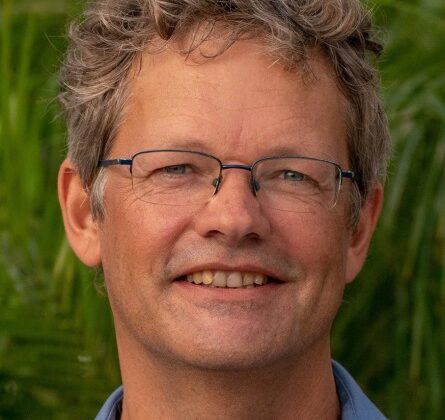Project title
Climate Change and the Governance of Tropical Marine Conservation
Research question
How do communities that are affected by or involved in Marine Protected Areas (MPAs) construct their appreciation of regulatory frameworks and to what extent do the consequences of climate change affect this appreciation? How are MPA regulatory frameworks presented and appreciated in discursive practice and what are the ideological underpinnings and belief constructs underlying these practices?
Project description
Ocean health plays an extraordinarily important role in the current climate crisis. The oceans serve as climate regulator by absorbing and redistributing carbon dioxide (C02) and heat. Obviously, oceans also provide eco system services beyond climate regulations such as providing food, energy, health and well-being, offering a transport infrastructure, and by serving as a cultural and recreational site. These benefits will likely decrease as the health of oceanic ecosystems deteriorate. For example, the oceans already seem to be losing their ability to act as carbon sinks and coral reefs are dying from ocean warming resulting in complex cascading effects, including the ocean’s ability to provide food.
The most prominent globally used area based policy tool to protect marine ecosystems are marine protected areas (MPAs). While oceans play a crucial role in sustainability and resilience, and MPAs are the tool to preserve oceans, their efficiency is often questioned. Controversies span from parks that only exist on paper while not being actively managed, to ecosystems within protected areas deteriorating as fast as outside and ocean grabbing discourses in which MPAs exclude communities from access to resources they depend on for their livelihood. This controversy has only increased as climate change adds additional, external stressors onto marine ecosystems.
The intricate relationship between the (non-)efficacy of MPAs governance, ecosystems resilience and the impacts of climate change requires a deep understanding of community belief systems on agency and ownership in the context of these MPAs. Understanding the belief systems that drive or prevent social adoption of regulatory frameworks in MPAs on the basis of either understanding and learning, peer pressure or enforcement allows for the development of tools to further support that social adoption that co-determine the governance potentials of these MPAs.
A discourse historical analysis from a critical perspective will be designed and tested to allow for the formulation of a socio-diagnostic critique and a future oriented critique of social adoption of MPAs against the backdrop of regulatory frameworks and policy that determine the scope of impact of MPAs. The outcomes of this allow for an understanding of beliefs that form the basis for potential strategies that address ideological barriers to social adoption, and allow for the further development of strategies that tap into ideological support.
Surprisingly, little research has investigated how MPAs are impacted by climate change or how potential governance responses can keep pace with these dynamic stressors. However, the international community (Agenda 2030 and the Convention for Biological Diversity) has pushed for a massive increase in ocean area protected by MPAs, the so called ‘30by30 goal’ aims for 30% of the oceans protected by 2030. If MPAs are to meet their objectives of preserving marine ecosystems and creating more resilient biological communities that can resist and recover from climate events, they will need to consider the consequences of climate change.
This project is part of the theme group on ‘Climate Change and Tropical Marine Conservation’. To gain a better understanding on how MPAs are coping in times of a changing climate, the theme group will bring together information on what observed impacts of climate change on human and non-human communities in and adjacent to MPAs are. As research cases, the project will investigate four MPAs representing highly sensitive and biologically diverse tropical marine social-ecological systems. These MPAs, two in Indonesia and two in the Dutch Caribbean, serve as a magnifying glass in our multi-scalar investigation on future ocean governance. Related to this first question, we want to compile information on what actual and potential governance responses to climate change consequences are. The final piece of this puzzle that we would like to discuss then is to what extent does ocean governance respond to climate change induced social-ecological impacts? Why (not)?
Selected publications
Eppinga, M., Mijts E. and Santos, M. (2022). Ranking the Sustainable Development Goals: perceived sustainability priorities in small island states. Sustainability Science.
Eppinga, M., de Scisciolo, T. & Mijts, E. (2019). Environmental science education in a small island state: integrating theory and local experience’ in Journal for Environmental Education Research 2019 Volume 25.
Mertens, A., Buys, N., Arens, P., Gielen, G., Mijts, E. (2023). ‘SISSTEM: academic STEM program as change agent for sustainable development on the small island state of Aruba’. In W. Purcell and J. Haddock-Fraser (eds.) Bloomsbury handbook of sustainability in higher education: an agenda for transformational change. Bloomsbury.
Mijts, E. (2021). The situated construction of language ideologies in Aruba: a study among participants in the language planning and policy process (diss.) Antwerp University/Ghent University.
More about myself
Dr. Eric Mijts is a researcher, educator and manager at the University of Aruba with a keen interest in program design for sustainable development in small island states. He is co-founder and coordinator of the Sustainable Island Solutions through Science, Technology, Engineering and Mathematics (SISSTEM) project cluster. Driven by his passion for the balance between humanity and the environment, Eric supports several international research and education projects on marine and terrestrial ecosystems health, governance and restoration.
He is co-founder and coordinator of the Academic Foundation Year and facilitates and initiates international students research exchange programs. As a researcher Eric is also affiliated to the University of Antwerp and Ghent University and is an active partner in the Global Resilience Research Network, in the United Nations Sustainable Development Solutions Network and in the Metabolism of Islands think tank. His research and publications focus on multilingualism, language policy and planning, education for sustainable development and inclusion/exclusion processes.
